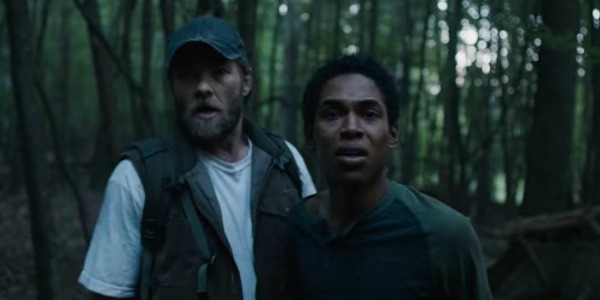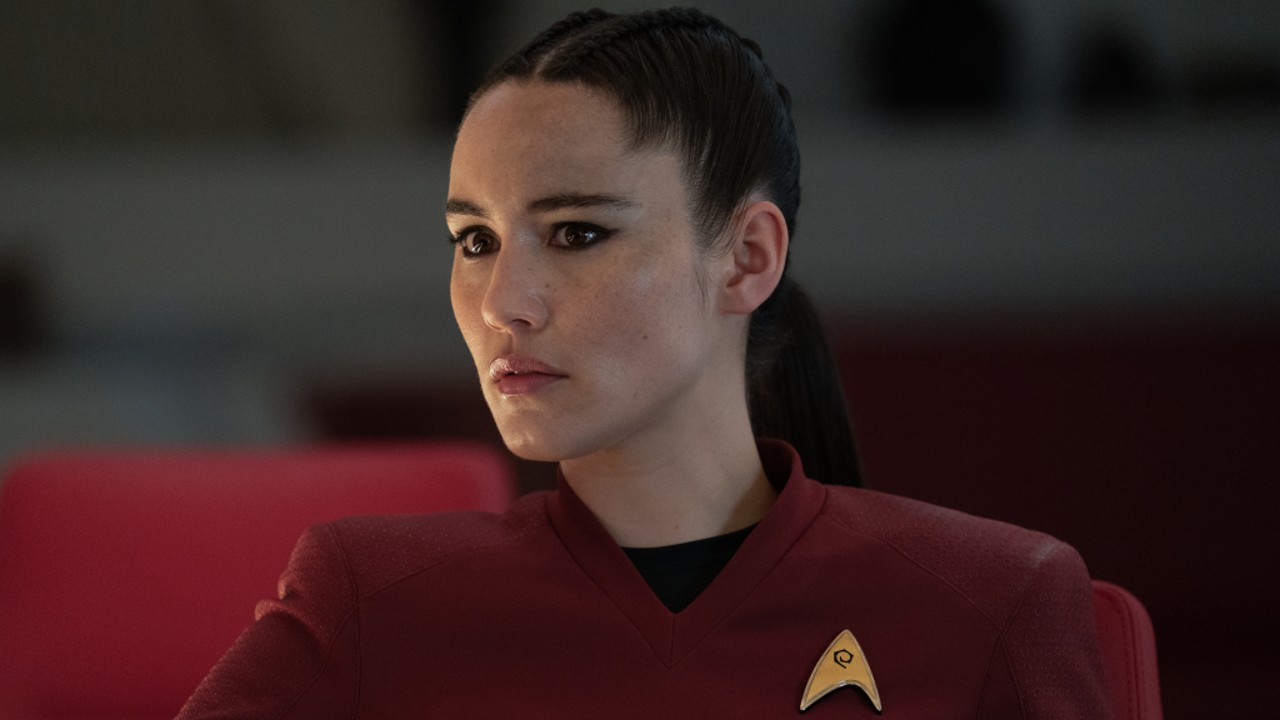Why The It Comes At Night Alternate Ending Didn’t Work, According To Joel Edgerton

WARNING: The following article contains some SPOILERS for It Comes At Night. While they don't go into specifics, they give vague hints about its outcome, so you should proceed cautiously.
It Comes At Night is already being talked about as one of the best horror films of 2017. Not only because of just how unnerving and subtly terrifying it is, but because it doesn't pull any punches in just how dark it becomes. But it almost ended in a much more twisted fashion, as Trey Edward Shults originally wrote and shot It Comes At Night with the intention of bringing it to a close with a horrifying dream sequence. However, the decision was ultimately made to go in a different direction, something that its lead star Joel Edgerton firmly agreed with. Joel Edgerton explained:
I think ultimately maybe it was a little confusing, when we are in the real world and when we are not. And when you try to marry the real world with that fever dream it becomes a little, the audience wants to know, 'Is this real? Or is it not? And what if it's both?' It is almost too much of a meta idea.
Joel Edgerton admitted this to me when I recently sat down with the actor to discuss It Comes At Night. I also chatted to Trey Shults about his follow-up to 2015's Krisha, too, and he went into more detail about the alternate ending to It Comes At Night, explaining to me that it would be yet another one of Travis (Kelvin Harrison Jr)'s nightmares, but this time it would see him confronting all of the demons he had to battle with in the house. Trey Shults remarked:
The end of the movie, what it has all been leading to, what I think is devastating, what happens in the woods between the families, that's what it was all about. And then what I struggled with after that for a while is, I have these nightmares throughout the movie, not just to scare you, but to bring you closer to Travis and to see what is on his mind, and in his subconscious, and what he is battling. So I thought we needed one big final nightmare, where he confronts everything, and essentially goes to hell. But his hell is this house, and his version of hell is his parents in this house, and Will coming back, and fire.
Joel Edgerton also added some further details regarding the sequence, revealing that it would have seen Will (Christopher Abbott) returning to the house, and then looking to torture Travis, Paul (Joel Edgerton) and Sarah (Carmen Ejogo), before then burning the entire home to the ground. Joel Edgerton continued:
Because of the sickness, part of the sickness feeds into the dreams that Kelvin's character is having, so ultimately him slipping into illness is his final dream. It was a terrifying situation where Chris [Abbott]'s character is basically in some kind of torture scenario with the family and is going to set us all on fire.
It took a while for Trey Shults to realize that the scene needed to be cut from It Comes At Night, though. Which probably had something to do with the fact that they actually shot the sequence, which included burning down the home where the movie is entirely set. After showing it to some people, Trey Shults soon realized that the intended conclusion might be a bit too much, before he then finally found a much "simpler" and "effective" way to bring it an end, without jeopardizing his original vision. Trey Shults recalled:
I shot it. And we burned down a set, and it took me a while to finally cut it. And once I entertained the notion [of cutting it] I started stripping away. First off, I would show it to people and they'd be like, 'The movie is great, but what the hell is that ending?' It's too much. You turn off. I can't go there. You're like, 'Dude, what do you want from me?' But it took me a while to click. I had a purpose for all of it, and I had this final confrontation, and it speaks to a lot of what the movie was getting at. But the problem was that it beat everyone into submission, they didn't connect emotionally, and then they were just pummelled. And then I figured out how to say what I wanted to say in a much more simpler, effective, tonally resonant way, and I'm very happy with what we found. But it was a journey to get there.
But while Joel Edgerton agrees that Trey Shults was right to get rid of the final nightmare sequence, he is still slightly disappointed that people didn't get to see his performance during it, as he believes that it was some of the greatest work he has ever done as an actor. However, he is still adamant that it was for the greater good of the film, and is ecstatic with how It Comes At Night has ended up. Joel Edgerton remarked:
It is some of the greatest acting that I have ever done that hit the cutting room floor. I'm not even joking ... I've seen all the different versions of it. And I'm very impressed with where the movie has landed now. It's still thought provoking. It doesn't answer all the questions, which is right up my alley. I don't need everything wrapped up in a neat little bow. If you've got half a brain, you can watch the end of the movie, and have your own version of it, and still it feels complete.
It Comes At Night is now in theaters, and, as my review attests, I believe that it is truly astounding stuff. So go and see it. And if you already have, go and see it again.
Your Daily Blend of Entertainment News

